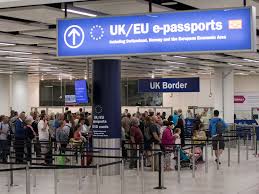 LONDON: Britain’s National Health Service has said that it has pulled out of a contentious agreement that gave government officials access to confidential patient data to help track down people suspected of breaking immigration laws.
LONDON: Britain’s National Health Service has said that it has pulled out of a contentious agreement that gave government officials access to confidential patient data to help track down people suspected of breaking immigration laws.
Some doctors and lawmakers objected to the data-sharing, saying it violated doctor-patient confidentiality and left sick people fearful of seeking medical help.
After human-rights campaigners mounted a legal challenge, the government said in May that it was suspending the agreement while new terms were drawn up that narrowed the data-sharing to cases of “serious criminality.”
The health service’s IT agency, NHS Digital, said it had received a “revised narrowed request” for information-sharing and would consider whether it was in the public interest.
In the meantime, it said it has “formally closed-out” its participation in the existing agreement.
Immigration is a divisive issue in Britain, and reducing the number of newcomers was a major factor behind the 2016 vote to leave the European Union. The Conservative government has an oft-stated but long-unmet goal of reducing net immigration below 100,000 people a year, less than half the current level.
The government has faced criticism over policies designed to make the U.K. a “hostile environment” for illegal immigration. Critics say it has led to legal residents of the country prevented from getting housing, jobs and health care. In some cases individuals have faced deportation.
The data-sharing agreement, quietly signed in 2016, gave the government access to addresses and other personal information collected by family doctors, though not to clinical data.
Doctors who work with refugees and asylum-seekers described the move as a major breach of medical ethics, saying physicians should not be responsible for enforcing immigration rules.
Leading medical organizations including the Royal College of General Practitioners, Public Health England and the General Medical Council all slammed the data-sharing deal.
The Home Office, the government department responsible for immigration, said it was working with NHS Digital “on a new memorandum of understanding to enable us to make requests for non-medical information about those facing deportation action because they have committed serious crimes, or where information is necessary to protect someone’s welfare.” AP






